What’s the secret to finding credible sources for your research paper?
As a researcher, you know that NOT ALL SEARCH ENGINES ARE CREATED EQUAL.
But have you ever wondered what sets academic research search engines apart from the rest?
Academic search engines use specialized algorithms to curate peer-reviewed articles, research studies, and scholarly papers from trusted sources.
Ready to upgrade your research game?
Let’s dive into my top picks for the best academic research search engines, featuring their key features, pros, and cons.
Best search engines for research
Here are the top free academic search engines to help you discover high-quality, peer-reviewed content.
Google Scholar: The King of Academic Search Engines?
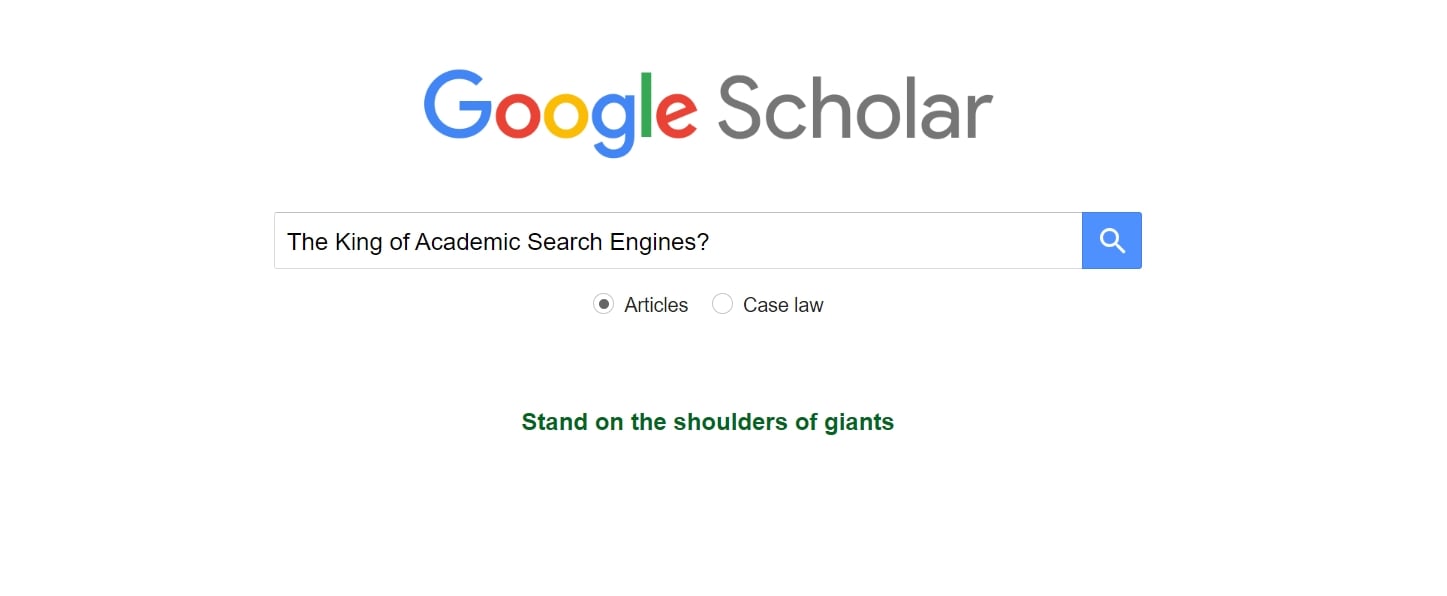
First up, we have Google Scholar, one of the most popular and widely used ACADEMIC SEARCH ENGINES out there.
Launched in 2004, Google Scholar has become the go-to destination for researchers, students, and academics looking for scholarly articles, research papers, and academic studies.
Features:
- Indexes over 380 million scholarly articles across various disciplines
- Advanced search features, including filtering by author, publication, and date
- Citation metrics, including citation count and h-index
- Links to full-text articles and PDF downloads
- Support for multiple languages
Pros:
- Comprehensive database of scholarly articles
- Easy to use and intuitive interface
- Free to use with no subscription fees
- Citation metrics to track research impact
Cons:
- Quality control issues with some low-quality articles
- Indexing issues with certain journals and proceedings
- No subject-specific filtering
Is Google Scholar reliable?
Yes.
But use it in conjunction with other academic search engines and evaluate source quality to ensure comprehensive and credible research.
Semantic Scholar: The AI-Powered Academic Search Engine
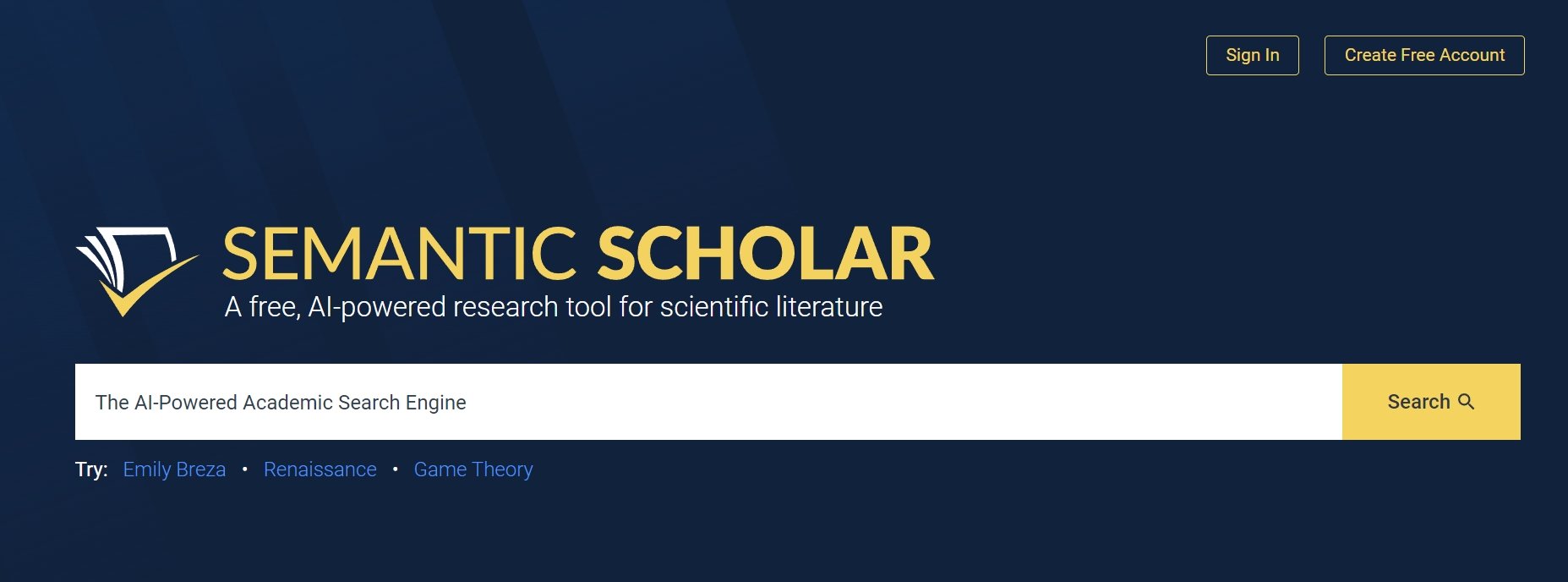
Next, we have Semantic Scholar.
It’s a free academic search engine that uses artificial intelligence (AI) to help researchers find relevant scholarly articles, research papers, and academic studies.
Key Features:
- Natural Language Processing (NLP) for accurate search results
- Article summaries for quick understanding
- Keyword extraction for related research discovery
- Detailed citation metrics
- Author profiles for showcasing work and collaboration
Pros:
- Accurate search results through NLP
- Time-saving article summaries
- Comprehensive citation metrics
- Opportunities for collaboration and networking
Cons:
- Limited database compared to other search engines
- Some users may find the interface overwhelming due to the abundance of features
PubMed: The Go-To Search Engine for Life Sciences and Biomedical Research
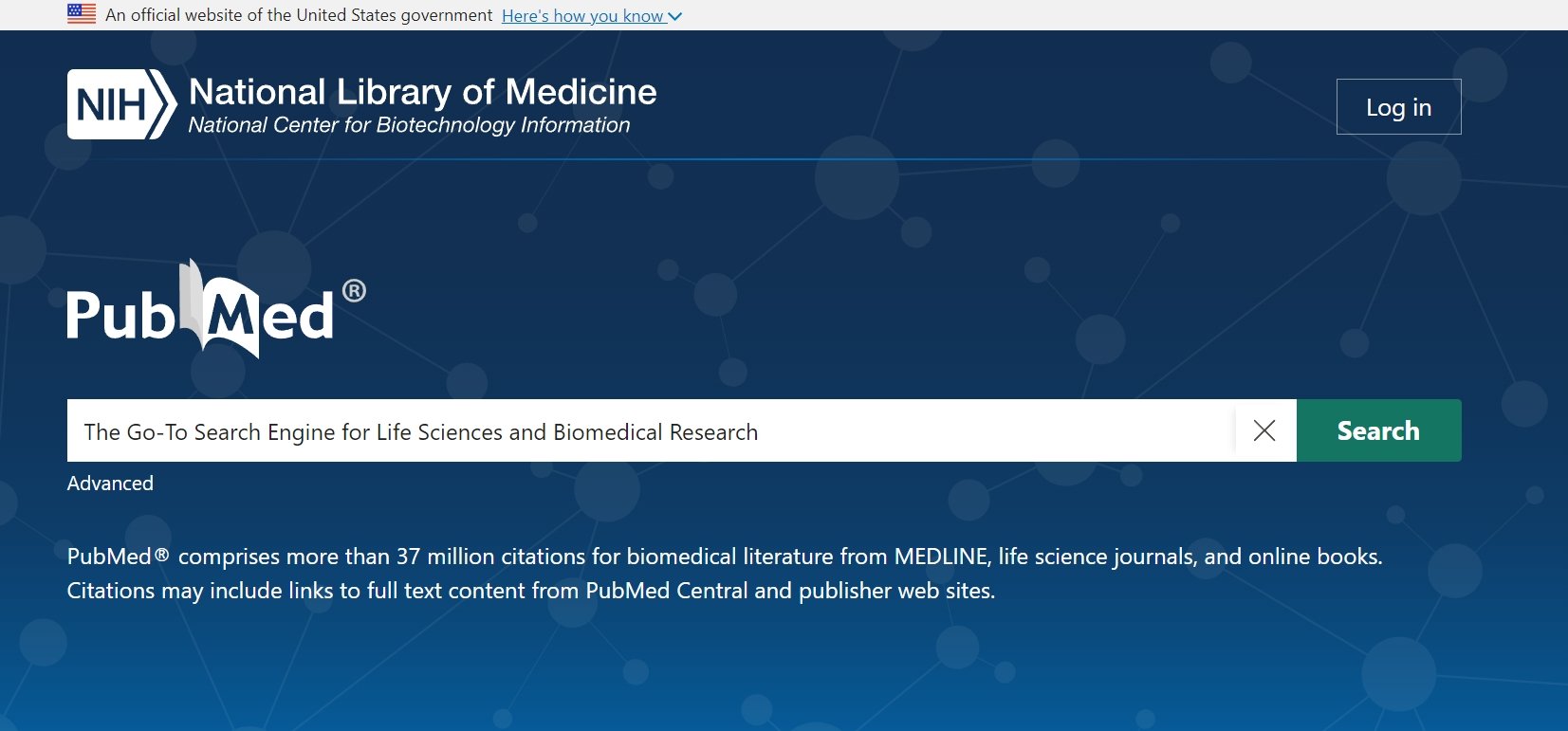
PubMed is a free database of biomedical literature maintained by the National Library of Medicine (NLM) at the National Institutes of Health (NIH).
PubMed is a reliable search engine for research in the life sciences and biomedical fields.
Key Features:
- Comprehensive database of 30+ million biomedical articles
- Advanced search features (author, publication, date, MeSH terms)
- Full-text access and PDF downloads
- Citation metrics and clinical trial database
Pros:
- Authoritative and trusted database in life sciences and biomedical fields
- Comprehensive coverage of biomedical literature
- Advanced search features for refined results
- Free to use with no subscription fees
Cons:
- Limited to biomedical fields, may not be useful for other disciplines
- No subject-specific filtering
- Some full-text articles require subscription or institutional access
How does PubMed support research?
PubMed’s comprehensive database and advanced search features provide researchers with a trusted source of biomedical literature, saving time and effort in finding relevant articles and supporting research in the life sciences and biomedical fields.
DOAJ: The Directory of Open Access Journals
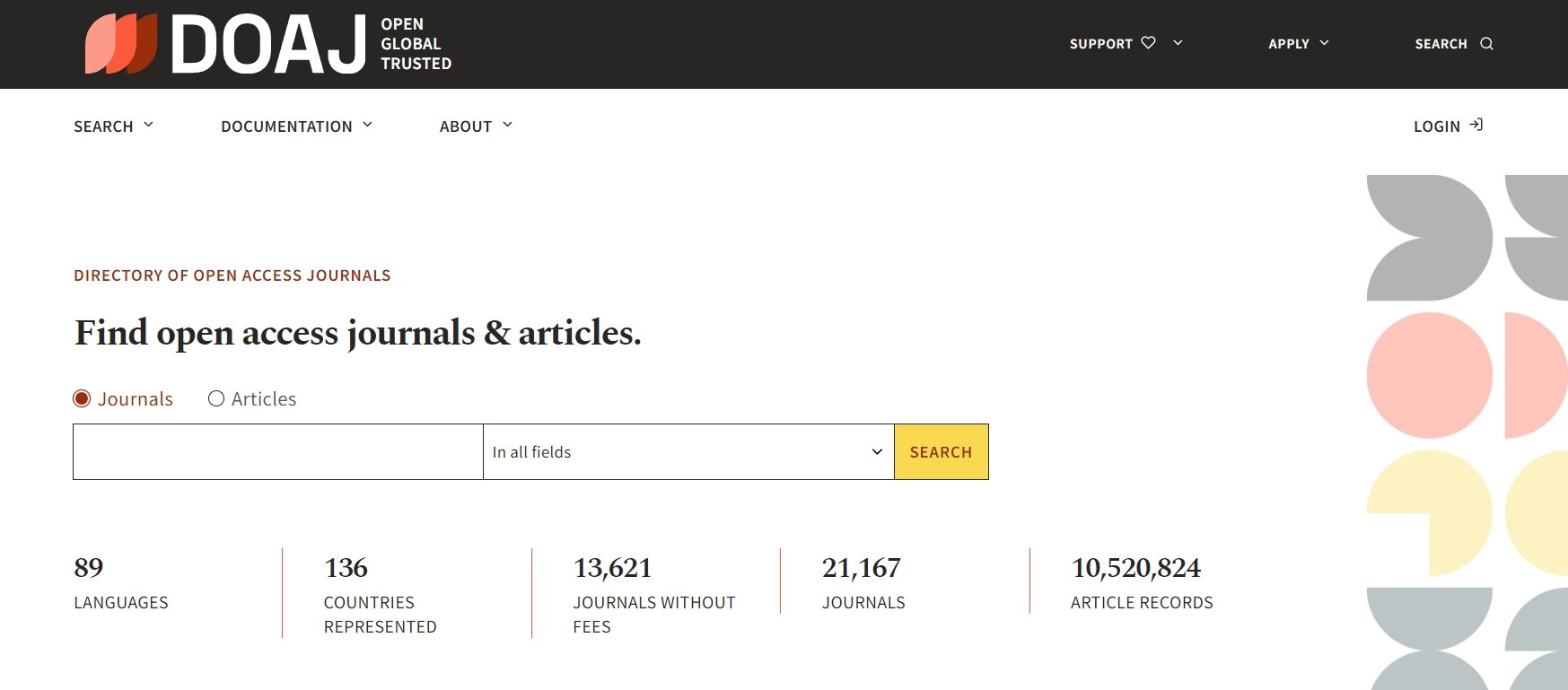
DOAJ is a free directory of open access journals that aims to promote the visibility and accessibility of scholarly articles published in open access journals.
Key Features:
- Directory of 21,000+ open access journals across various disciplines
- Filtering and search features (subject, publisher, language)
- Journal metadata (title, publisher, ISSN, URL)
- Article metadata (title, authors, abstract, DOI)
Pros:
- Promotes open access and visibility of scholarly articles
- Comprehensive directory of open access journals
- Filtering and search features for refined results
- Free to use with no subscription fees
Cons:
- Limited coverage to open access journals
- Quality control issues with some journals
- No full-text access to articles
How does DOAJ promote open access?
DOAJ promotes open access by providing a comprehensive directory of open access journals, filtering and search features, and metadata for journals and articles, making research more widely available and contributing to the advancement of knowledge.
CORE: The World’s Largest Aggregator of Open Access Research Papers
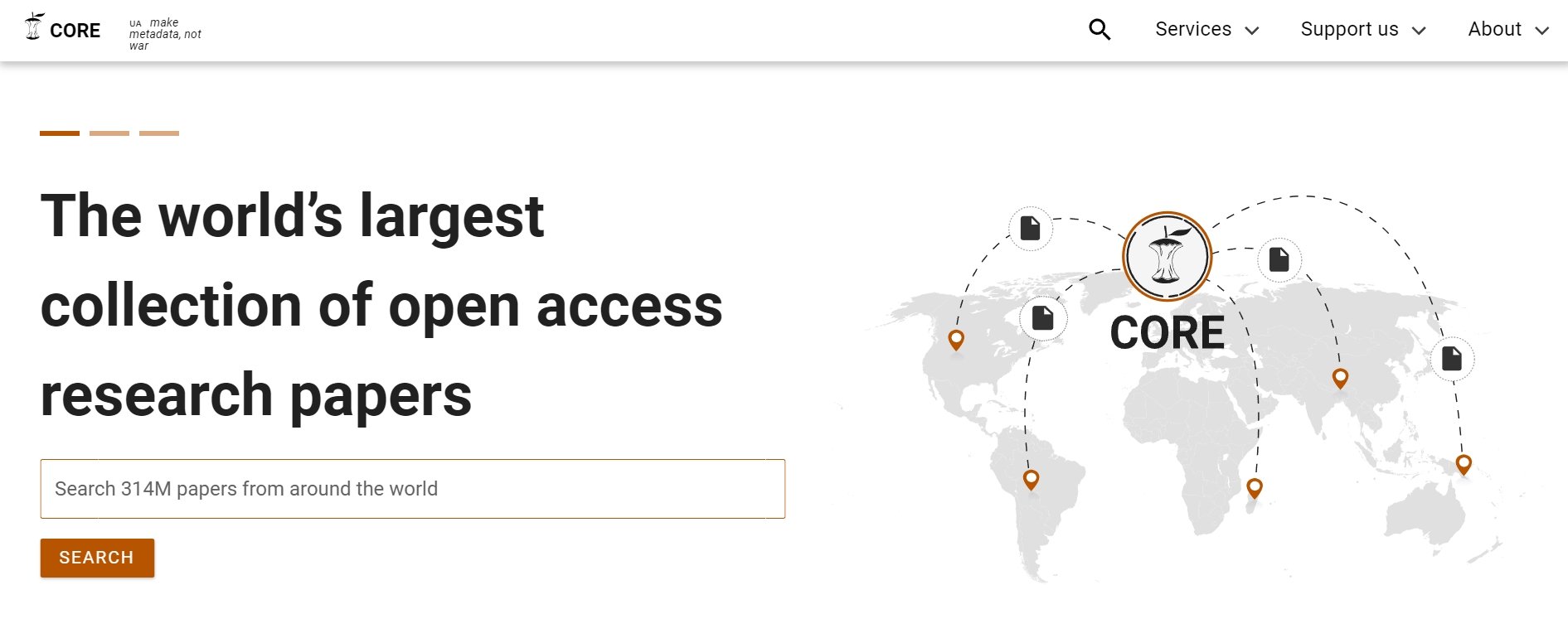
CORE is a free search engine that aggregates open access research papers from around the world.
It’s a not-for-profit service.
It aims to provide a comprehensive and seamless search experience for researchers, academics, and the general public.
Key Features:
- Aggregator of 314 million+ open access research papers from 10,000+ data providers
- Filtering and search features (subject, author, publication date)
- Full-text access to millions of research papers
- Metadata for each paper (title, authors, abstract, DOI)
Pros:
- Comprehensive coverage of open access research papers
- Filtering and search features for refined results
- Full-text access to millions of papers
- Free to use with no subscription fees
Cons:
- Limited coverage of non-open access papers
- Quality control issues with some papers
What makes CORE a valuable resource for researchers?
CORE’s comprehensive coverage of open access research papers, filtering and search features, and full-text access make it a valuable resource for researchers and academics, providing easy access to relevant papers and supporting research in various fields.
Science.gov: The Gateway to U.S. Federal Science
Next, we have Science.gov, a free search engine that provides access to scientific and technical information from U.S. federal agencies.
Science.gov is a gateway to a vast array of scientific and technical information, including research papers, reports, and data.
Key Features:
- Aggregator of scientific and technical information from 60+ U.S. federal agencies
- Filtering and search features (subject, author, publication date)
- Full-text access to millions of research papers, reports, and data
- Metadata for each paper (title, authors, abstract, DOI)
Pros:
- Comprehensive coverage of scientific and technical information from U.S. federal agencies
- Filtering and search features for refined results
- Full-text access to millions of papers, reports, and data
- Free to use with no subscription fees
Cons:
- Limited coverage of non-U.S. federal information
- Quality control issues with some information
What makes Science.gov a valuable resource for researchers?
Science.gov’s comprehensive coverage of scientific and technical information from U.S. federal agencies, filtering and search features, and full-text access make it a valuable resource for researchers and academics, providing easy access to relevant information and supporting research in various fields.
CiteseerX: The Scientific Literature Digital Library
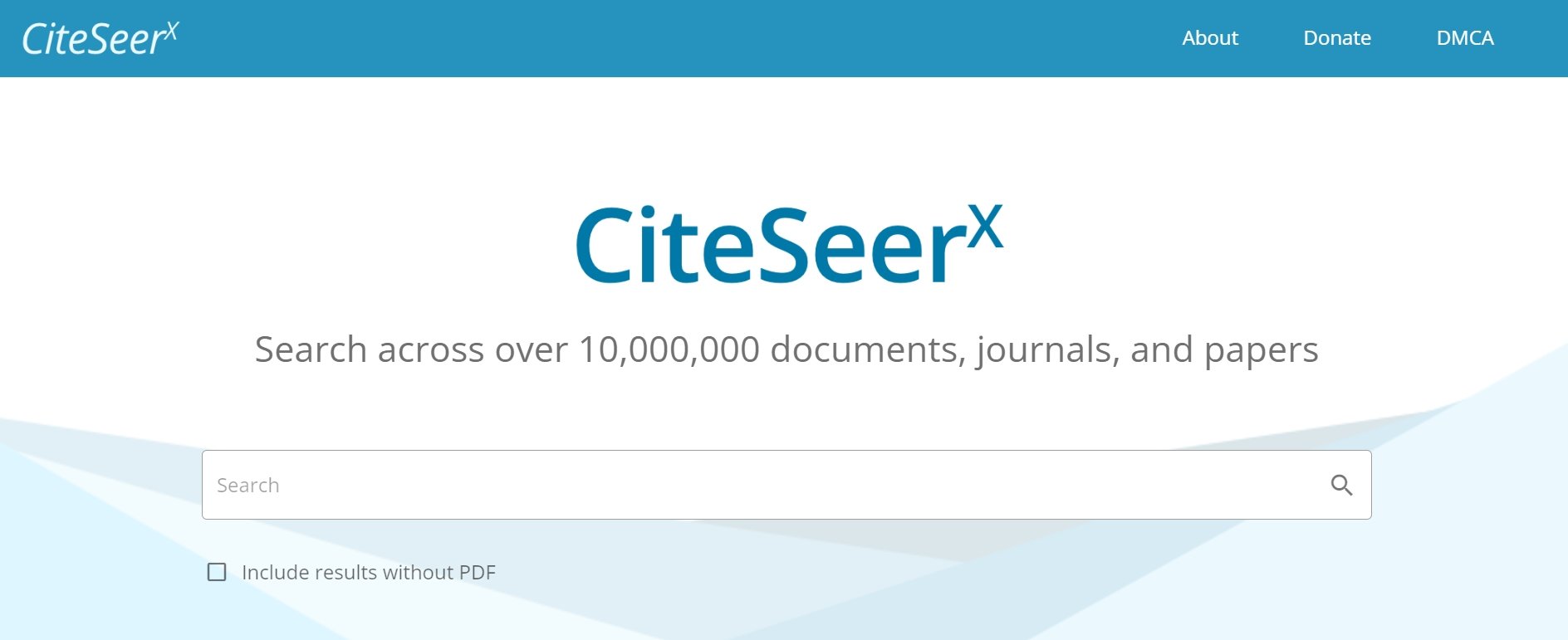
Next, we have CiteseerX, a free search engine that indexes scientific and academic papers from around the world. CiteseerX is a digital library that aims to provide a comprehensive and seamless search experience for researchers, academics, and the general public.
Key Features:
- Index of 10 million+ scientific and academic papers from around the world
- Filtering and search features (subject, author, publication date)
- Full-text access to millions of research papers
- Metadata for each paper (title, authors, abstract, DOI)
Pros:
- Comprehensive coverage of scientific and academic papers
- Filtering and search features for refined results
- Full-text access to millions of papers
- Free to use with no subscription fees
Cons:
- Limited coverage of non-scientific papers
- Quality control issues with some papers
What makes CiteseerX a valuable resource for researchers?
CiteseerX’s comprehensive coverage of scientific and academic papers, filtering and search features, and full-text access make it a valuable resource for researchers and academics, providing easy access to relevant papers and supporting research in various fields.
Additionally, CiteseerX’s indexing of papers from top conferences and journals makes it a reliable source for finding high-quality research papers.
Baidu Scholar: The Chinese Search Engine for Academic Literature

Baidu Scholar , a free Chinese academic search engine that indexes academic literature from around the world, with a focus on Chinese-language publications.
Key Features:
- Index of 100 million+ academic papers, including papers from top Chinese universities and research institutions
- Filtering and search features (subject, author, publication date)
- Full-text access to millions of research papers
- Metadata for each paper (title, authors, abstract, DOI)
Pros:
- Comprehensive coverage of Chinese-language publications
- Filtering and search features for refined results
- Full-text access to millions of papers
- Free to use with no subscription fees
Cons:
- Limited coverage of non-Chinese language publications
- Quality control issues with some papers
- Language barrier for researchers who do not speak Chinese
How does Baidu Scholar support research in China and around the world?
Baidu Scholar supports research in China and around the world by providing comprehensive coverage of academic literature in Chinese, filtering and search features, and full-text access to millions of research papers.
The platform helps researchers find and access relevant papers, making it a valuable resource for researchers and academics in China and around the world.
What makes Baidu Scholar a valuable resource for researchers?
Baidu Scholar’s comprehensive coverage of Chinese-language publications, filtering and search features, and full-text access make it a valuable resource for researchers and academics, providing easy access to relevant papers and supporting research in various fields.
Additionally, Baidu Scholar’s indexing of papers from top Chinese universities and research institutions makes it a reliable source for finding high-quality research papers.
Not Entirely Free, but Worth Exploring: Academic Search Engines with Limited Free Features
While the following search engines are not entirely free, they offer some free features or limited access that can still be valuable for researchers and academics.
Here’s a brief overview of each:
ResearchGate: A Social Networking Platform for Scientists and Researchers

ResearchGate is a social networking platform for scientists and researchers to share and discover research, collaborate with colleagues, and connect with experts in their field.
While not entirely free, ResearchGate offers some free features, including:
- ResearchGate indexes over 100 million research papers, including papers from top journals and conferences
- The platform offers filtering and search features, such as filtering by subject, author, and publication date, to help researchers find relevant papers
- ResearchGate provides limited full-text access to research papers, with some papers available for free and others requiring a subscription or institutional access
Pros:
- ResearchGate provides comprehensive coverage of research papers, including papers from top journals and conferences
- The platform’s filtering and search features help researchers refine their search results and find relevant papers
- ResearchGate allows researchers to connect with colleagues, collaborate on projects, and join groups related to their field
Cons:
- ResearchGate’s free features are limited, with some papers and features requiring a subscription or institutional access
- While ResearchGate has a quality control process, some papers may not meet the platform’s standards, and researchers should evaluate the credibility and quality of the papers
Microsoft Academic: A Search Engine for Academic Publications
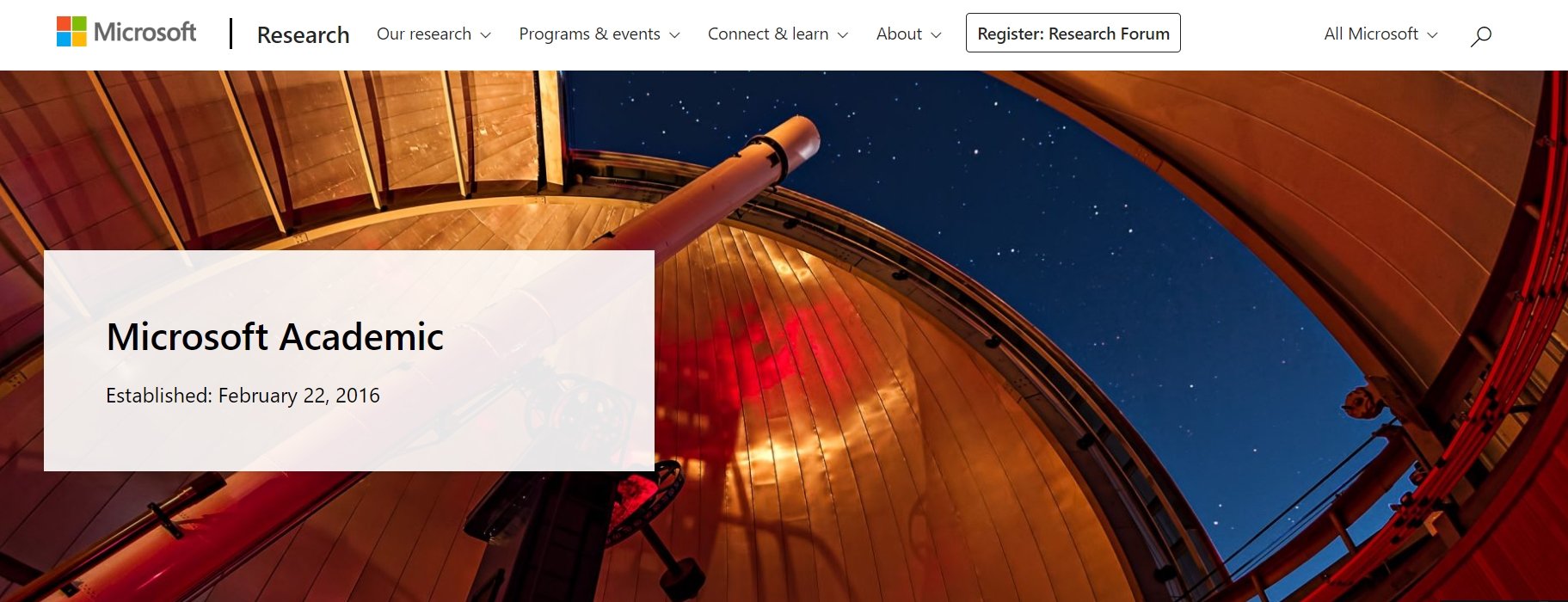
Microsoft Academic is a search engine for academic publications, including papers, journals, and conferences.
While not entirely free, Microsoft Academic offers some free features, including:
- Microsoft Academic indexes over 200 million academic publications, including papers, journals, and conferences
- The platform offers filtering and search features, such as filtering by subject, author, and publication date, to help researchers find relevant papers
- Microsoft Academic provides limited full-text access to research papers, with some papers available for free and others requiring a subscription or institutional access
Pros:
- Microsoft Academic provides comprehensive coverage of academic publications, including papers, journals, and conferences
- The platform’s filtering and search features help researchers refine their search results and find relevant papers
- Microsoft Academic integrates with other Microsoft products, such as Bing and Microsoft Office
Cons:
- Microsoft Academic’s free features are limited, with some papers and features requiring a subscription or institutional access
- While Microsoft Academic has a quality control process, some papers may not meet the platform’s standards, and researchers should evaluate the credibility and quality of the papers
Subscription-Based Academic Search Engines
The following academic search engines require a subscription or institutional access to unlock their premium content.
Scopus: A Comprehensive Abstract and Citation Database

Scopus is a comprehensive abstract and citation database that covers over 24,000 peer-reviewed journals, conference proceedings, and book series.
It requires a subscription or institutional access to access its premium content.
- Scopus covers a wide range of subjects, including science, technology, engineering, mathematics, and social sciences.
- Scopus offers advanced search features, such as filtering by subject, author, and publication date, to help researchers find relevant papers.
- Scopus indexes high-quality content from top journals and conferences.
JSTOR: A Digital Archive of Academic Journals and Books
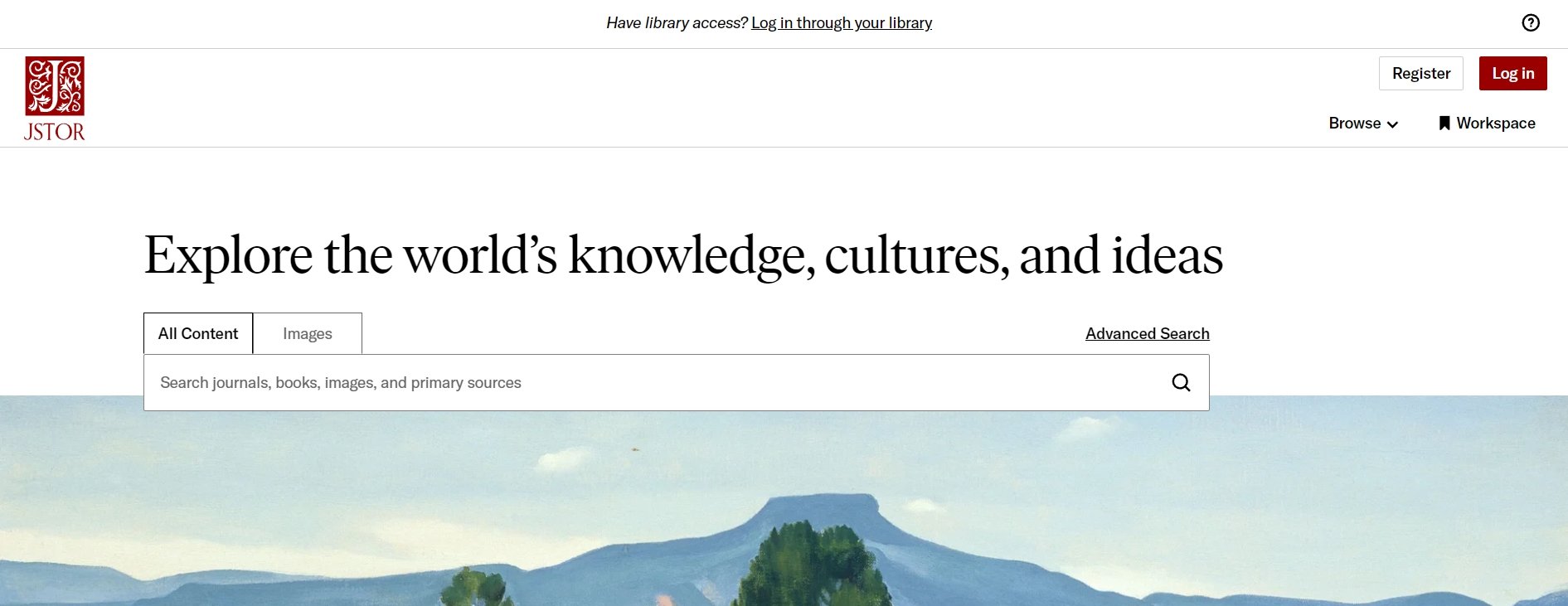
JSTOR is a digital archive of academic journals and books that covers a wide range of subjects, including humanities, social sciences, and sciences.
It also requires a subscription or institutional access to access its premium content.
- JSTOR covers a wide range of subjects, including humanities, social sciences, and sciences.
- JSTOR offers advanced search features, such as filtering by subject, author, and publication date, to help researchers find relevant papers.
- JSTOR indexes high-quality content from top journals and publishers.
IEEE Xplore: A Digital Library of Technical Literature
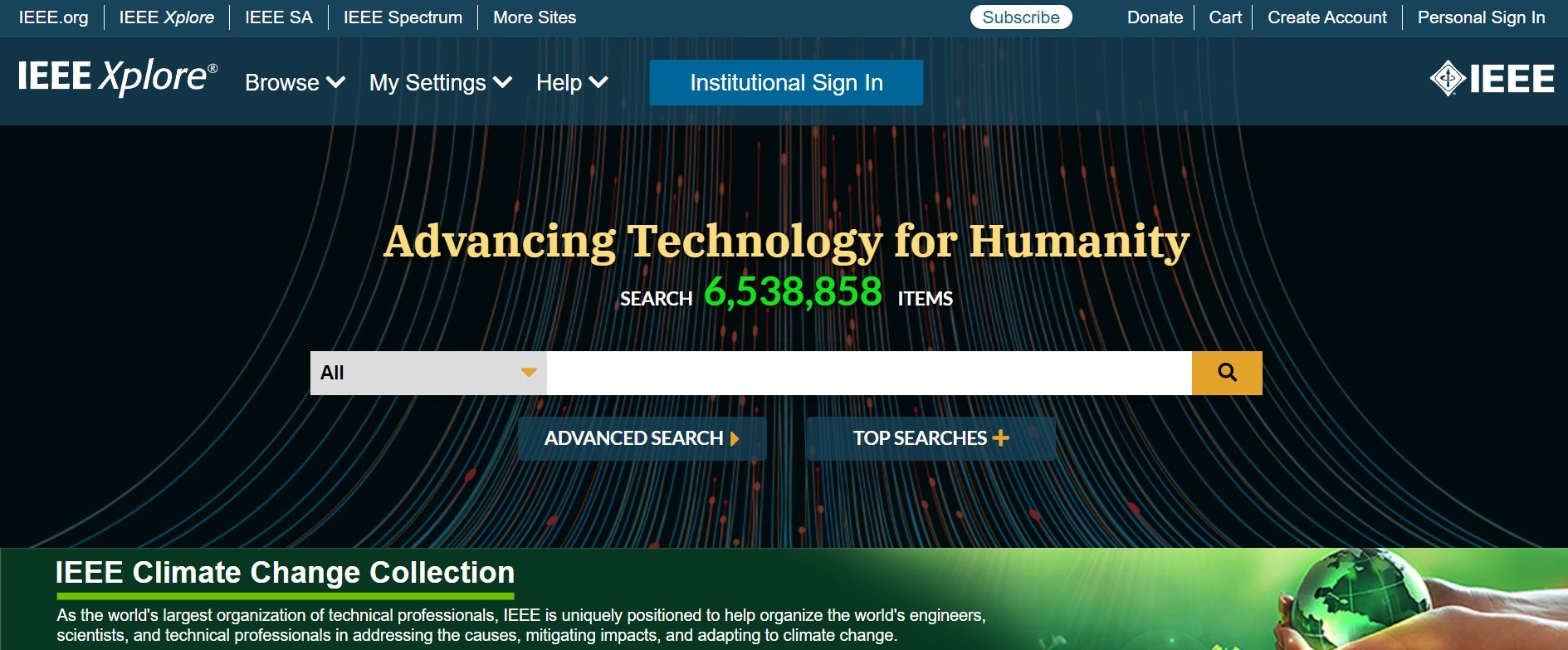
IEEE Xplore is a digital library of technical literature that covers a wide range of subjects, including electrical engineering, computer science, and technology.
It also requires a subscription or institutional access to access its premium content.
- IEEE Xplore covers a wide range of subjects, including electrical engineering, computer science, and technology.
- IEEE Xplore offers advanced search features, such as filtering by subject, author, and publication date, to help researchers find relevant papers.
- IEEE Xplore indexes high-quality content from top journals and conferences.
ScienceDirect: A Leading Scientific, Technical, and Medical Journal Database
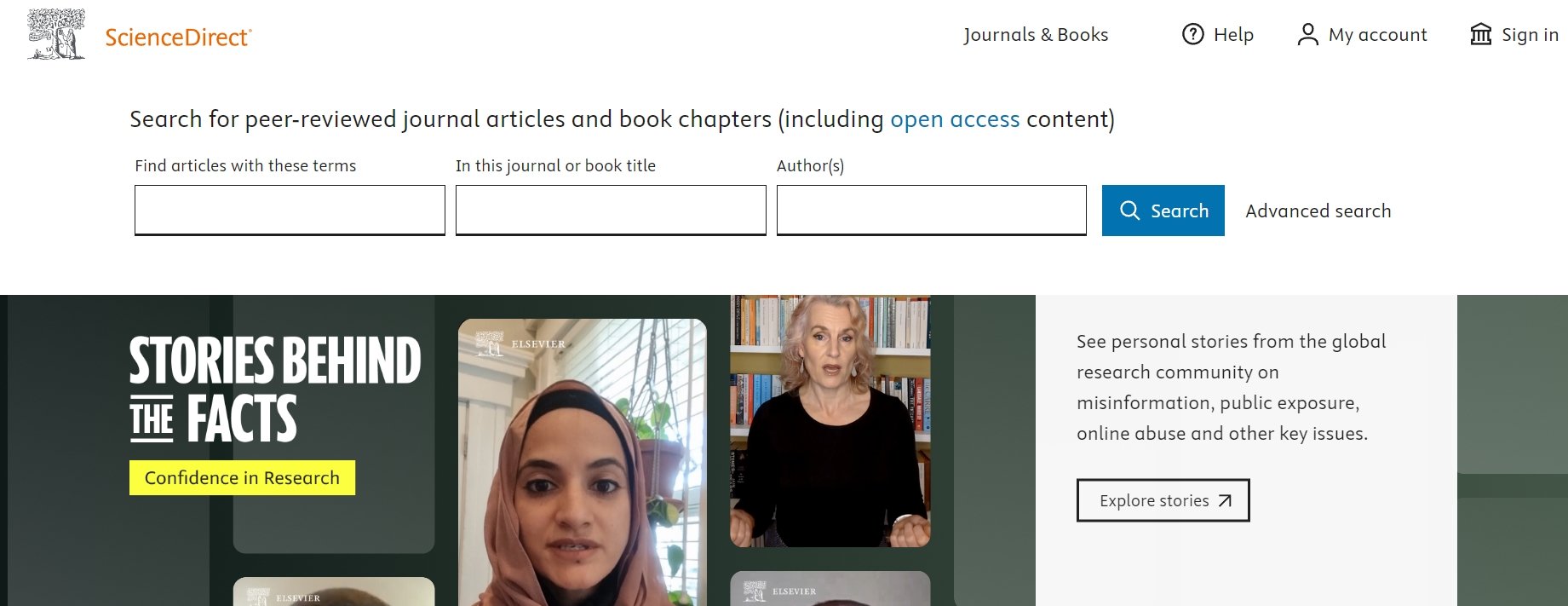
ScienceDirect is a leading scientific, technical, and medical journal database that covers a wide range of subjects, including science, technology, engineering, and mathematics.
ScienceDirect requires a subscription or institutional access to access its premium content.
- ScienceDirect covers a wide range of subjects, including science, technology, engineering, and mathematics.
- ScienceDirect offers advanced search features, such as filtering by subject, author, and publication date, to help researchers find relevant papers.
- ScienceDirect indexes high-quality content from top journals and publishers.
Clarivate Web of Science: A Comprehensive Citation Database
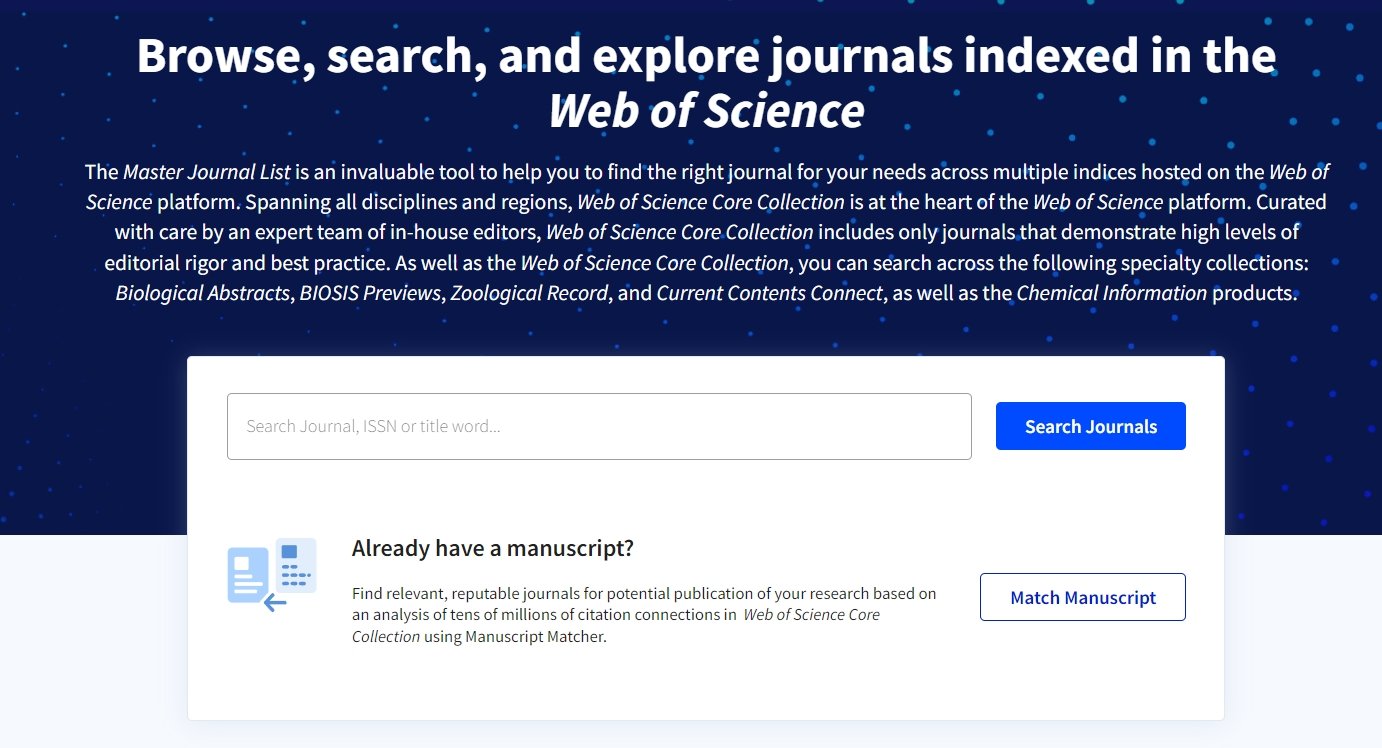
Clarivate Web of Science is a comprehensive citation database that covers a wide range of subjects, including science, technology, engineering, mathematics, and social sciences.
Clarivate Web of Science requires a subscription or institutional access to access its premium content.
- Clarivate Web of Science covers a wide range of subjects, including science, technology, engineering, mathematics, and social sciences.
- Clarivate Web of Science offers advanced search features, such as filtering by subject, author, and publication date, to help researchers find relevant papers.
- Clarivate Web of Science indexes high-quality content from top journals and conferences.
Wrapping it up
In conclusion, finding the right academic research search engines can be a game-changer for students and scholars.
By leveraging the best search engines for research, you can uncover credible sources, streamline your research process, and produce high-quality work.
Remember to always use reliable search engines for research, such as the ones mentioned in this article, to ensure the accuracy and validity of your findings.
Happy researching with the top academic research search engines!
Frequently Asked Questions
Which search engine is the best for research?
The best search engine for research depends on your specific needs and field of study. However, some of the top academic search engines include Google Scholar, Microsoft Academic, and Semantic Scholar. These search engines are designed to provide high-quality, peer-reviewed results and offer advanced features such as citation tracking and author profiles.
What is the top research paper search engine?
Google Scholar is often considered one of the top research paper search engines. It indexes a vast number of scholarly articles, theses, and books from reputable sources and provides features such as citation tracking, author profiles, and publication metrics.
What is the best browser for scientific research?
The best browser for scientific research is not necessarily a specific browser, but rather a browser that is equipped with the right tools and extensions. Some popular browser extensions for scientific research include citation managers like Zotero and Mendeley, as well as search engine plugins like Google Scholar Button. In terms of browsers, Google Chrome and Mozilla Firefox are popular choices among researchers due to their flexibility and customizability.
Which Google is best for research?
Google Scholar is the best Google search engine for research. It is specifically designed for searching scholarly literature and provides features such as citation tracking, author profiles, and publication metrics. Additionally, Google Scholar is integrated with other Google services, such as Google Drive and Google Docs, making it easy to save and organize your research findings.







